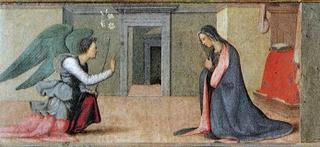
Propossals:
A Year of Penance?
ARCHBISHOP CRISTIAN CARO CORDERO OF PUERTO MONTT, CHILE. "My proposal is that, given the close theological, spiritual and pastoral relationship between the Eucharist and the Sacrament of Penance, and taking into account the shadows in the latter, a year be dedicated to the Sacrament of Penance, taking as fundamental points the following: the meaning of the true and living God, and His eclipse in modern culture; the need of salvation and the announcement of Jesus Christ; ... the sense of sin, which is diminished or annulled, due to the loss of God and moral relativism; conversion and the virtue of penance; spiritual guidance or accompaniment; the celebration of the Sacrament of Penance as an encounter between the sinner, who converts from his misery, and God who, in His mercy in Christ, welcomes and forgives him; the conditions for receiving Holy Communion; new life in Christ, as His disciples and members of the Church. With respect to the relationship between the Eucharist and the pastoral care of vocations, I propose that in the 'Year of Penance' priests be formed and motivated to give spiritual direction to young people and to give time to the Sacrament of Reconciliation which, together with the Eucharist, are fundamental in spiritual guidance.
Against Canonization Homilies at Funerals
CARDINAL JORGE ARTURO MEDINA ESTEVEZ, PREFECT EMERITUS OF THE CONGREGATION FOR DIVINE WORSHIP AND THE DISCIPLINE OF THE SACRAMENTS. "Intimately united to the sacrificial nature of the Eucharistic celebration is its propitiatory element, as much for the living as for the dead. Obsequial liturgy aims above all to support the soul of the deceased, and it is a misapplication to convert the obsequial homily into a tribute of the person who has passed away."
Experiencing the Joy of the Eucharist
BISHOP PETER KANG U-IL OF CHEJU, KOREA. "In the Church in Korea the attendance of children at Eucharist decreases drastically as they move on to higher age. The children who don't attend the Mass say it is because Mass is too tedious and not interesting. Adults also say that because they find it very boring, they cannot motivate themselves to attend. As a priority we have to motivate and give rise within the hearts of Catholics to a desire and aspiration to participate in the Eucharist. ... In order to communicate to modern people the mystery of the Eucharist it is not enough to strictly enforce the rules and regulations regarding the celebration of the Sacrament. For our part, as bishops we need to more actively research ways to make it easier for modern Catholics to experience the real value of the Eucharist, to participate fully in it and to experience the joy of it."
No comments:
Post a Comment
Note: Only a member of this blog may post a comment.